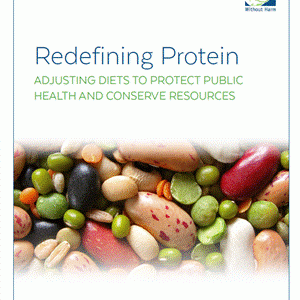
The report ‘Redefining protein: adjusting diets to protect public health and conserve resources’ looks at different protein sources and their environmental, health and social impact. The authors note that ‘transitioning to diets with more plant-based ingredients is an essential action to promote health, food security, and long-term environmental sustainability. However, the impact on health and sustainability outcomes can vary depending on the types of foods with which meats are replaced.’ This report summarises and analyses the available academic literature on the impacts of whole food protein options alternative to meat, with an emphasis on legumes, nuts and seeds, eggs, seafood, and dairy.
Impacts are categorized as strong positive (SP), moderate positive (MP), neutral (N), moderate negative (MN), strong negative (SN), or debated/uncertain (D) based on the relative per-serving impact of that food group compared to other food groups on that impact factor. The findings are summarised in the table below.

You can find the report and an executive summary here.
The report comes with a separate guide on procurement recommendations based on the criteria of sustainability, nutrition, social, and animal welfare concerns: see here (pdf).
See also this blog by the report’s author Raychel Santo from the John Hopkins Center for a Livable Future on the report.







Post a new comment »